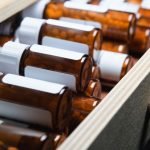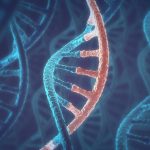New Microfiltration Technique May be Able to Measure Cancer in 1 mL of Blood
NODE SMITH, ND
A microfilter device that can easily separate and capture trace amounts of cancer cells in blood has been developed by a Kumamoto University research group. The palm-sized device is expected to contribute to the development of new cancer diagnostic technologies based on cancer cells in the blood, such as early detection by blood test, postoperative management, and recurrence monitoring. This research was posted online in Talanta.
The blood of people with cancer contains trace amounts of cancer cells (CTCs) that have detached from the primary cancer site. However, the amount of these cells is only a few per milliliter, whereas red or white blood cells number in the billions, making it very difficult to separate and detect them. Although devices for detecting CTCs have been developed in the past, they require expensive equipment and reagents, which has been a bottleneck for their practical application.
The unique microfilter device developed by the Kumamoto University research group can easily and inexpensively separate and capture CTCs without any large equipment. The device is dynamically and three-dimensionally deformed by the fluid force when blood is pumped through it. It also utilizes nucleic acid aptamers, which bind specifically and firmly to target molecules. This enables both size-selective and affinity-selective separation and capture of tiny cancer cells.
While evaluating the device, researchers demonstrated that it could capture cancer cells even at a concentration of just five cancer cells in one mL of healthy blood. Since there are about five billion (red and white) blood cells in a mL of blood, the device proved to have a very high detection capability. Researchers also found that almost no blood cells were adsorbed by the microfilter, achieving a blood cell removal rate of more than 98%. It also had a high selective detection capability. Furthermore, in a comparative evaluation, they proved that the device was able to detect cancer cells with higher accuracy than existing devices.
“This work demonstrates that our micro-filter device can accurately detect trace amounts of cancer cells in blood,” said Associate Professor Yuta Nakashima, who led the study. “We expect it will be adopted for cancer diagnosis and treatment, including for early diagnosis of cancers that cannot be detected by imaging like CT and PET scans, postoperative follow-up, recurrence monitoring, and tailor-made treatments. In the future, we plan to use blood samples donated by cancer patients to verify the practical and clinical application of the method.”
1. Soichiro Fukuyama, Seitaro Kumamoto, Seiya Nagano, Shoma Hitotsuya, Keiichiro Yasuda, Yusuke Kitamura, Masaaki Iwatsuki, Hideo Baba, Toshihiro Ihara, Yoshitaka Nakanishi, Yuta Nakashima. Detection of cancer cells in whole blood using a dynamic deformable microfilter and a nucleic acid aptamer. Talanta, 2021; 228: 122239 DOI: 10.1016/j.talanta.2021.122239

Node Smith, ND, is a naturopathic physician in Humboldt, Saskatchewan and associate editor and continuing education director for NDNR. His mission is serving relationships that support the process of transformation, and that ultimately lead to healthier people, businesses and communities. His primary therapeutic tools include counselling, homeopathy, diet and the use of cold water combined with exercise. Node considers health to be a reflection of the relationships a person or a business has with themselves, with God and with those around them. In order to cure disease and to heal, these relationships must be specifically considered. Node has worked intimately with many groups and organizations within the naturopathic profession, and helped found the non-profit, Association for Naturopathic Revitalization (ANR), which works to promote and facilitate experiential education in vitalism.










